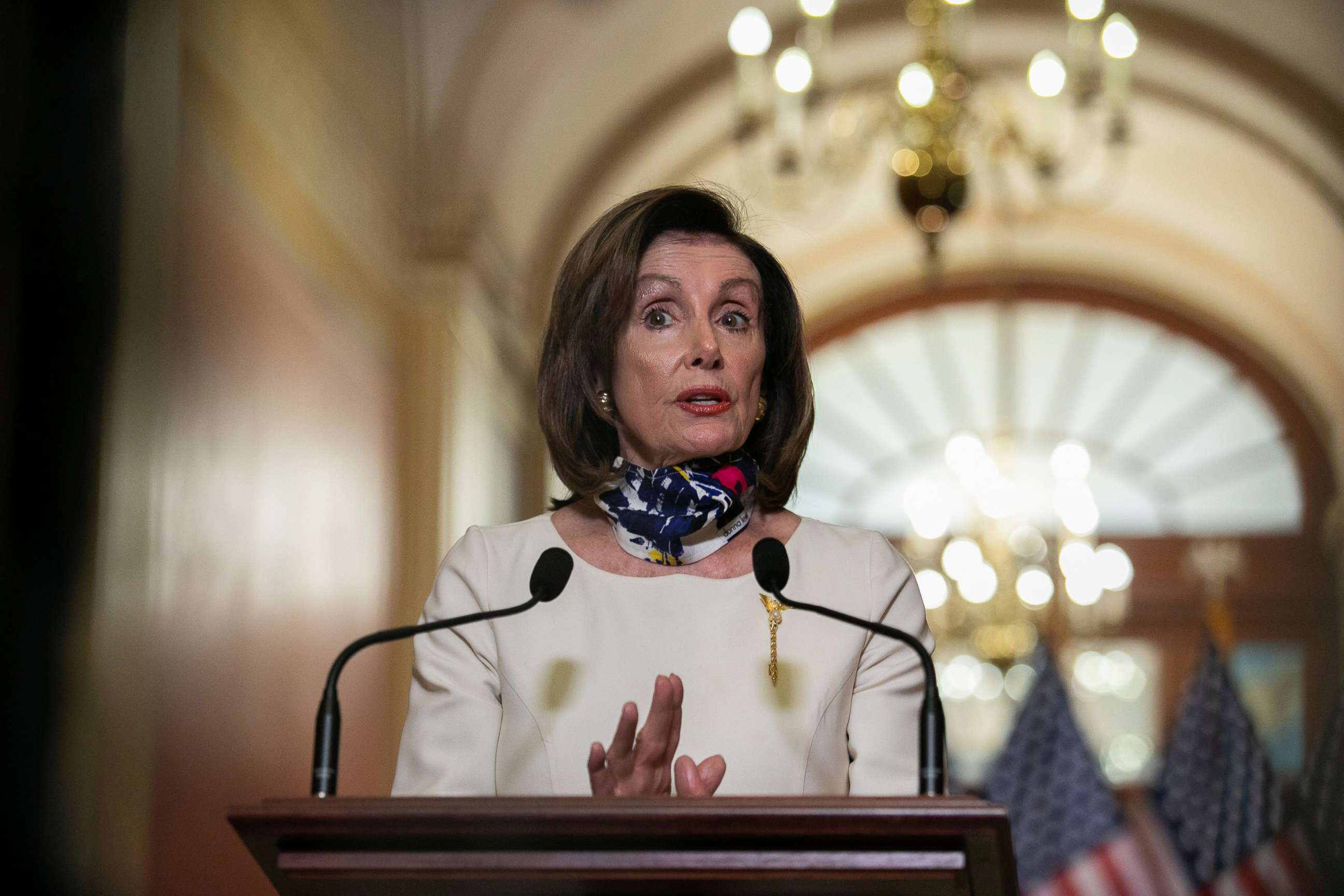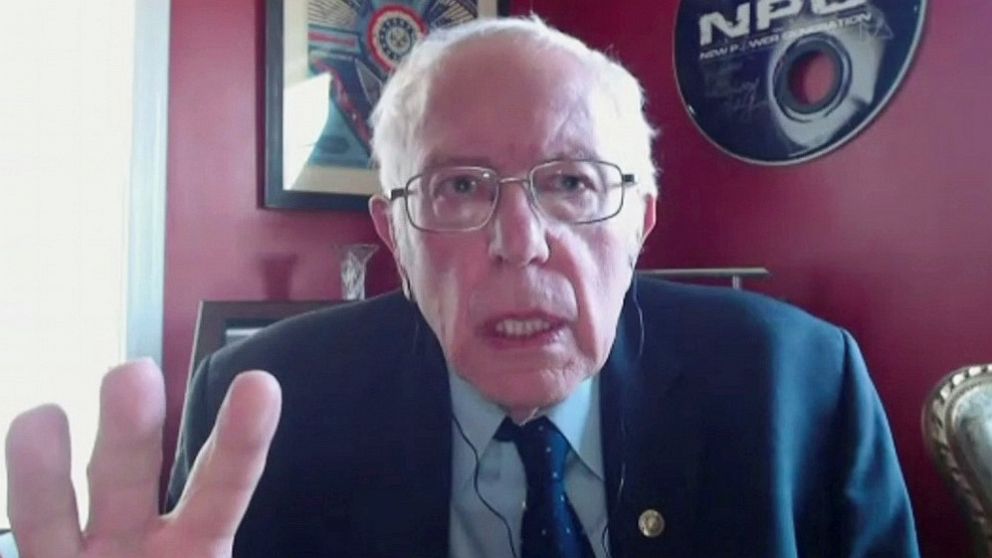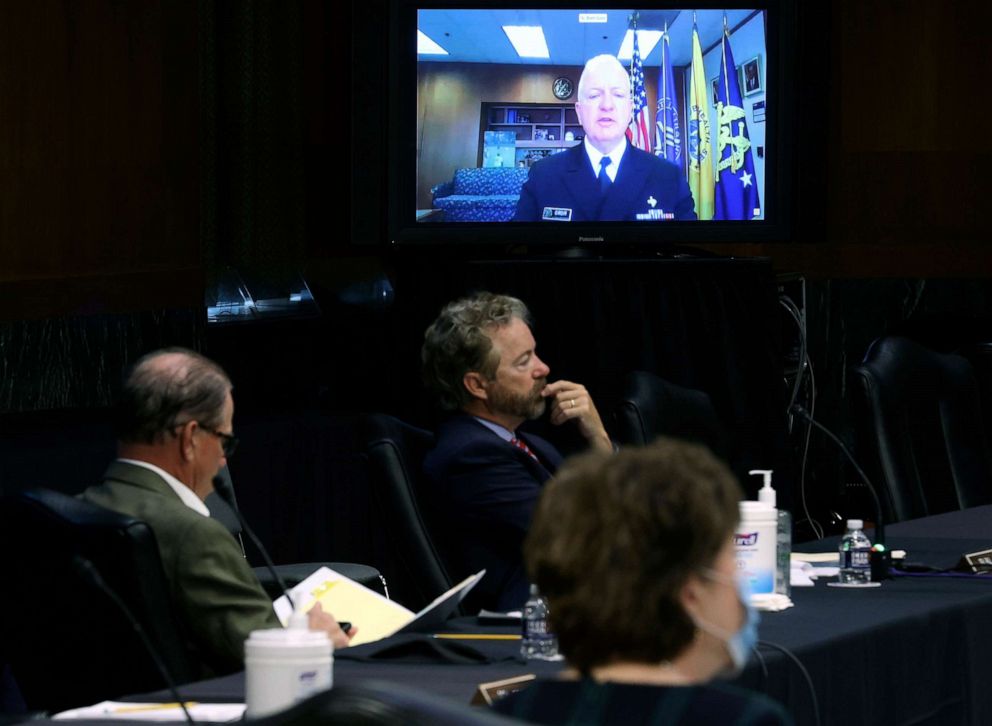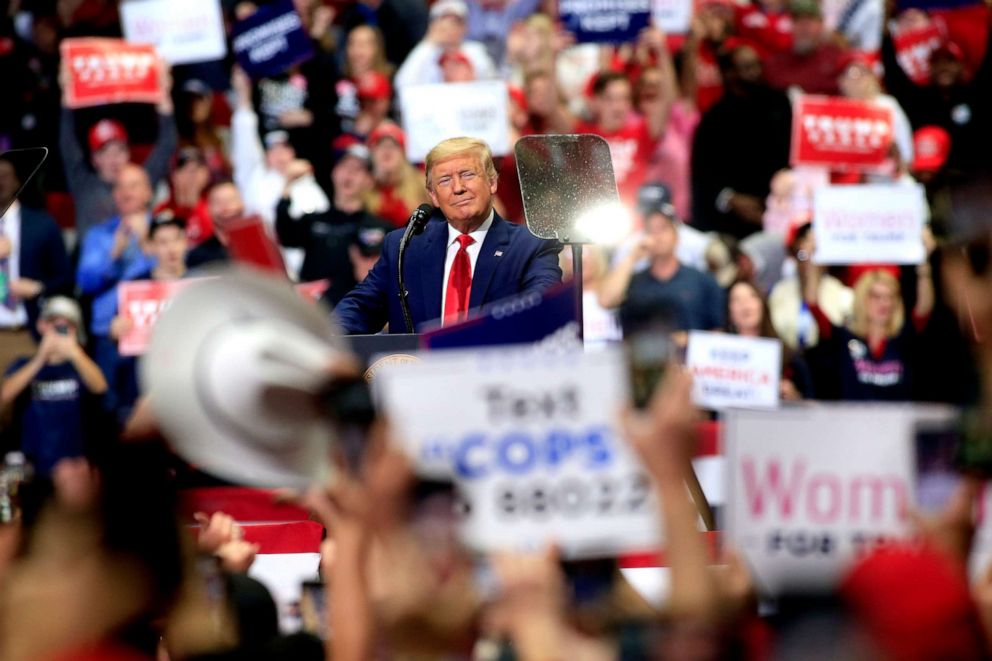The Note: COVID-19 drives alternate political realities
The pandemic is scrambling politics but not necessarily reordering anything.
The TAKE with Rick Klein
A nation headed in different directions in the midst of a pandemic has a political climate where events may as well be popping up in alternate realities.
The reopening debate is breaking along red-blue cultural divides. Protesters are being cast as either threats to public health or beacons of individual liberty.
House Democrats are looking to approve an additional $3 trillion in COVID-19 relief, which the House speaker calls "imperative." Senate Republicans want a pause on new spending, with the Senate GOP leader saying new aid should be "narrowly targeted."

House races are playing out where President Donald Trump is Republican candidates' strongest asset. Senate races are emerging where he's quite the opposite.
The White House is pushing something the president is calling "Obamagate" as the urgent political story of the moment. Former Vice President Joe Biden calls that a distraction and an affront to the rule of law, while starting to place blame for the coronavirus' economic toll on Trump.
Some of the divergences stem from a president who has himself quarreled with facts and science he has found inconvenient.
"We have prevailed," Trump declared Monday, in what he went on to say was a reference to testing.
"We run the risk of having a resurgence," Dr. Anthony Fauci said Tuesday.
A virus that doesn't know blue or red will dictate its own terms to a great extent. But political constructs could prove durable, with the pandemic scrambling politics but not necessarily reordering anything.
The RUNDOWN with MaryAlice Parks
If -- or, hopefully, when -- a COVID-19 vaccine is developed and cleared for use, who will be able to afford it?
At the high-stakes Senate hearing Tuesday on reopening the country, Sen. Bernie Sanders pushed federal government officials to guarantee that any future vaccine would be free or available at an affordable cost to all Americans, regardless of their income. It's a tough proposition for lawmakers and government officials in a country where the majority of residents are covered by private, for-profit insurance plans.

"If and when the vaccine comes, it won't do somebody any good if they don't get it. And if they have to pay a sum of money for it in order to profit the drug companies, that will not be helpful," the senator from Vermont said.
Assistant Secretary for Health, Adm. Brett Giroir, said he would "certainly advocate" that everyone be able to receive the vaccine and Dr. Stephen Hahn, the commissioner of the Food and Drug Administration stated the plain fact that payments for vaccines were not a responsibility of his agency.

"I'm glad to take this back to the task force, I share your concern that this needs to be made available to every American," Hahn said.
Just a few months ago, the White House and governors worked with insurance companies to make many tests free -- a clear precursor to this future conversation that strikes at the heart of the American health care model.
The TIP with Will Steakin
Trump's campaign and the Republican National Committee said this week that they raised $61.7 million in April. It's yet another reminder of how the coronavirus continues to impact the 2020 election.
The new numbers mark the second straight month the re-election team has seen a dip in fundraising amid the the pandemic. After raking in a gargantuan $86 million in February, Trump and the RNC saw a significant drop of over 25% in March, bringing in $63 million. And now April's haul comes in just slightly below the previous month.

Trump campaign manager Brad Parscale took to Twitter to defend the numbers, just narrowly out-raising Biden and the Democratic National Committee, writing, "Sleepy @JoeBiden just had his 1st month as the apparent Dem nominee, which is when the big early money comes in. And @realDonaldTrump still beat him in fundraising."
While Biden saw a boost in fundraising in April, the first month his campaign and the DNC reported combined totals, the presumptive Democratic nominee remains significantly behind the president's re-election effort which has over $255 million in the bank.
BRINGING AMERICA BACK
Manufacturing employs nearly 13 million people in the U.S. During the pandemic, they've been faced with new hygiene and safety protocols, supply shortages, factory closures and volatile demand. Several workers adjusting to the new normal spoke with ABC's "Nightline." Read this story and more by checking out Bringing America Back, an ABC News feature that highlights the day's top stories in economic recovery and medical preparedness amid the coronavirus pandemic.
THE PLAYLIST
ABC News' "Start Here" Podcast. Wednesday morning's episode features ABC News Senior Congressional Correspondent Mary Bruce on Dr. Anthony Fauci's warning to senators about reopening the country too soon. Then, ABC News Transportation Correspondent Gio Benitez breaks down his exclusive report on Democratic lawmakers' efforts to force airlines to give passengers their money back. And, ABC News Supreme Court contributor Kate Shaw offers her analysis on President Donald Trump's claim of "absolute immunity" from subpoenas. http://apple.co/2HPocUL
ABC News' "Powerhouse Politics" podcast. Sen. Bill Cassidy, R-La., joins ABC News Political Director Rick Klein and Chief White House Correspondent Jonathan Karl. The medical doctor serves on the Senate's Committee on Health Education Labor and Pensions, which heard from Dr. Anthony Fauci, director of the National Institute of Allergy and Infectious Diseases, Centers for Disease Control and Prevention Director Robert Redfield, Food and Drug Administration Commissioner Steven Hahn and White House "testing czar" Adm. Brett Giroir on Tuesday. https://bit.ly/2w091jE
WHAT YOU NEED TO KNOW TODAY
Download the ABC News app and select "The Note" as an item of interest to receive the day's sharpest political analysis.
The Note is a daily ABC News feature that highlights the day's top stories in politics. Please check back tomorrow for the latest.




